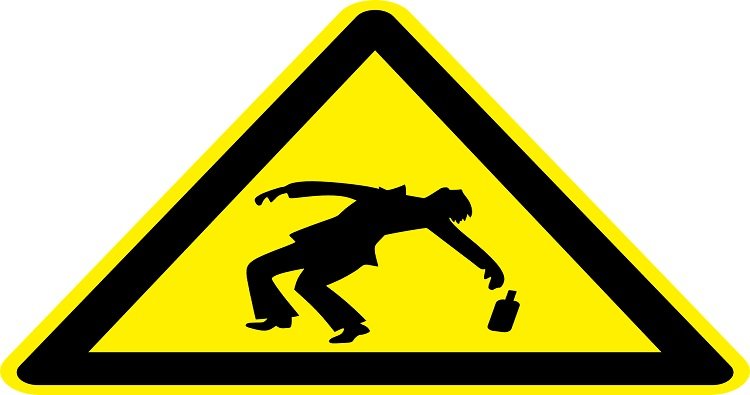- + 91 9958444373
- Malviya Road Dehradun, UK, India.
Blogs detail

Anger Management
- 2020-08-30
Anger, most of us and the people around us express anger, which is okay but how do we know when to manage our anger?
Do you feel like you have anger issues? Do you let the anger get the best of you? Do you experience feelings of guilt after expressing your anger? Do you think expressing anger is not good and keep your feelings bottled up? Do other people around you take out their anger on you? Do you feel someone around you gets too easily angry? Take a minute to answer these questions yourself.
Now that you have given it a thought why don't we get more aware of it?
Anger is a basic emotion like any other emotion(s) such as happiness, sadness, etc. However, frequently, anger is associated with bad or negative emotions and is generally considered appropriate not to show it, why is that so? The answer lies in its nature, mostly anger is destructive, hostile, and detrimental in nature. Anger results in aggressive behavior. Anger is an emotion that is impermanent while aggression is a behavior. Anger not necessarily be shown but aggression is always noticeable, it always harms others or oneself. Thus, anger management refers to the constructive displacement of anger. The management is therapeutic in nature, it helps in identifying the real cause of anger, to pinpoint the underlying psycho-social, emotional problems. It helps us in recognizing the triggers that cause anger and aids us in taking appropriate steps in dealing with the issues. Anger varies from person to person, some have an aggressive nature while some hardly exhibit and have a calm nature. Thus, the nature of anger management also varies from person to person in relation to the frequency and intensity of the anger expressed. What may work for one person may not work for another person and we need to realize this uniqueness in managing the anger of yourself and others as well.
To manage anger, first, we need to identify the triggers for it, what are the situations around you when you feel angry? What are the things that get on your nerves? What changes go on in your body when you’re angry? Being aware of the triggers will help you in managing anger more effectively.
Let's look at some of the general causes of anger:-
-
Stress & Frustration: Sometimes due to a lot of pressure and stress, we get annoyed, irritated and this frustration leads to anger. We might find ourselves getting angry over little things. For example- you have to submit an assignment in half an hour and you haven't started it yet, as you were busy with other things. At this time your mother comes and asks you to come down for lunch and you yell at her.
-
Anger as a Mask: Many times the anger is masking some other emotion and we don’t know till we go into the depth of it. It may also mask some of the insecurity, shame, guilt, or inferiority feelings. For example, the bullies in school/college generally bully other people to make up for something they lack. They want to be seen as cool and superior to others so they engage in rude behavior to others.
-
Adjustment problems: Do you find yourself getting angry when things don't go your way. Is it difficult for you to compromise without feeling angry? Even we see when some people around us don’t get their way they start to show signs of anger or passive-aggressive behavior.
-
Tiredness: Sometimes we overwork ourselves even without knowing which results in burnout! We tend to feel agitated easily when we are tired. Lack of sleep also intensifies anger, especially in frustrating situations (Iowa state university, 2018).
-
Genetics: Yes, aggression to some extent is heritable. Some researches say that the inherited anger is difficult to control as compared to the learned anger. For example we all have heard this “arey, iska gussa toh iske papa jesa hai” (he/she expresses anger like his/her father) or “iska gussa bilkul apne dada ji jesa” (he/she expresses anger like his/her grandfather). Such statements tell us the hereditary factor involved in anger.
-
Anger as learned behavior: Some of the anger styles are adapted in childhood by seeing how the people around you respond to anger. How the behavior is tolerated when anger is expressed in front of the family.For example: in a family where the anger is expressed via breaking things, getting violent, then the child will also learn the same thing and exhibit such behavior in the future as well. Whereas, in strict households where showing anger is highly reprimanded, the child will learn not to show anger and keep it inside him/her.
Anger as a mental health disorder-
History of mismanagement of anger, adopting maladaptive aggressive behaviors results in the development of anger-related mental health disorders. One such is the Intermittent explosive disorder, it comes under the category of impulse control disorder. it's a chronic disorder where the person engages in violent, sudden outbursts to minimal things, uncontrollable violent impulses. This behavior deteriorates the relationships with others, negatively impacts the health and social environment. It can include road rage (turned into fights), domestic violence, temper tantrums, breaking things in anger, and self-harm. Other disorders that include anger-related issues are oppositional defiant disorder (ODD), conduct disorder, Attention-Deficit/Hyperactivity Disorder(ADHD) in children and in adults narcissistic personality disorder, antisocial, borderline, paranoid personality disorder, and bipolar disorder. Now that we know about the possible causes let’s see some useful tips that will help in managing anger:-
Acknowledge your anger: The first step is to acknowledge your anger. Accept that you are angry when something is bothering you and you are not comfortable, denying the feelings will only make the situations worse. Anger is a basic emotion and you shouldn't feel bad about experiencing it. We have witnessed many people denying their anger when they’re in fact. When you’ve accepted your anger, then you can take a step towards changing it.
Be aware of the bodily changes: When we experience anger, our body goes through certain changes such as--
-
Sweating
-
Feeling hot, face turning red
-
Palpitations
-
Chest tightening
-
Stomach aches, any other body ache(s)
-
Stiffening of muscles
When you notice such changes, you can take a pause from the current situation and try to calm yourself down, drink water or walk briskly or count from 1 till 10.
Deep breathing: Whenever you feel like you are getting heated up, try deep breaths. Inhale while counting 1,2,3 and hold your breath for the next 5 seconds and exhale while counting 1,2,3. Repeat this for at least 5-6 times. This technique will help in calming your body and distracting yourself from the current situation. It will be difficult in the beginning but with constant practice and time, it'll do wonders.
Leave the situation: If you think you will not be able to control your anger, it will most probably be best to leave that place or situation and go to someplace quieter. For example, you’re in a group and someone angers you. It's best to make an excuse like to use the washroom or say you wanna take a call. It may help in things being calm and not letting things go out of hand.
Express anger constructively: It’s bad to keep your feeling bottled up, otherwise they will just explode one day. In that case, look for ways to let out your anger constructively such as playing some game that requires physical efforts, keeping boundaries, sharing with others why you’re angry, letting them know the things that make you angry. You can -
- Write down your anger
- Dance/paint out your anger
- Use of good respectful tone
- Use of stress balls/ fidget spinner
- Talk it out with someone who you can trust
Identify negative thought patterns: Identification of faulty thought patterns helps a lot in controlling anger. Most of the time people get angry because of the communication gap, jumping to conclusions (e.g. you always do things to hurt me), making false assumptions and sticking to them (e.g. everyone seems to have a problem with me), overgeneralizing (e.g. no matter how much I work hard, I’m always left behind). Changing such negative thought patterns into positive thoughts will help you in not losing your calm. For example: thinking that everyone grows and progresses at different rates and not thinking that people are there to get you down.
Be aware of what nature of anger you have: Do you throw temper tantrums when angry? Do you break things when angry? Do you not talk to anyone at that time? Do you express passive aggression? Do you become hostile while expressing anger? It's important to know because only then you can know what will help you in managing your anger effectively. For example: if you express your anger by breaking things, then you need to channel that energy into something more creative, such as before picking up things to break slowly count to 10 or if you express anger passively then you may need to adapt healthy communication skills. Doing such minor changes in your behavior will help you in having better relationships.
Seeking professional help: If your anger is uncontrollable and doing a lot of harm to the people around you, damaging the job, then seeking professional help will be a wise choice. The professional will be able to help you more effectively and assist you with your anger management. They can provide comprehensive treatment and help in leading a better life.
Reading self-help books: Reading is always beneficial, and reading books on anger management can help you in getting insights about yourself. Books such as, Anger Management For Everyone: Seven Proven Ways to Control Anger and Live a Happier Life, Anger Management for Dummies, 2ed Paperback, How to Keep Your Cool – An Ancient Guide to Anger Management, etc, all of these are available on Amazon India.
| Ms. Kajal Singh (Content Writer) |
|
Editor’s note: Anger management is very necessary and people should seek help when it is required, otherwise cases of crimes committed in a rage will keep on going up. Anger is an emotion it’s not something to be embarrassed about, thus, constructive displacement of anger is necessary to have a healthy relationship and life. |
Contact now
We are a group of health professionals, including Psychologists, Clinical psychologist, Rehabilitation Psychologist, Counsellors, Mindfulness Experts and Social Workers. We are working since 2018 in India to foster mental health.
Contact Us
recent blogs
-

SADNESS AND DEPRESSION ARE DIFFERENT!
2020-06-16 -

ALCOHOL USE DISORDER (AUD)
2020-06-19 -

SEASONAL AFFECTIVE DISORDER (SAD)
2020-06-12 -

UNDERSTANDING MINDFULNESS MEDITATION
2020-06-03 -

BURDEN OF DEPRESSION
2020-06-17







